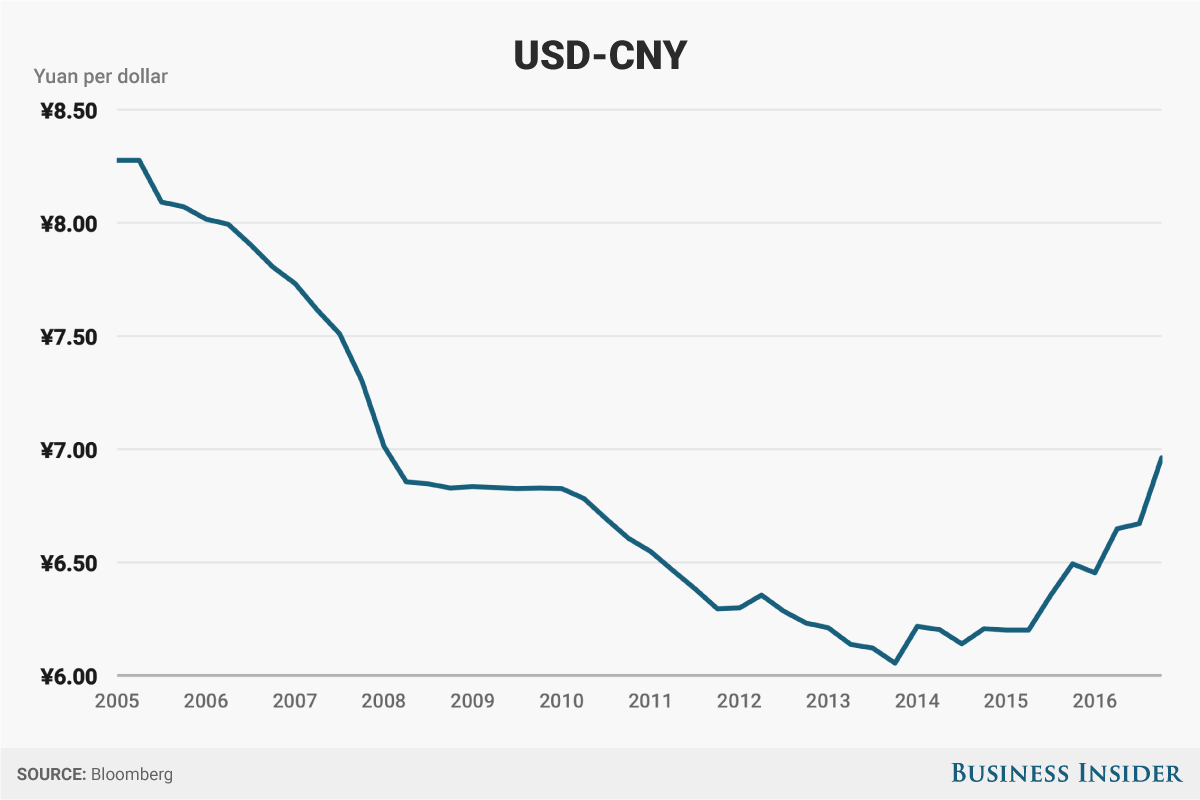The Chinese yuan has been in a controlled decline since the beginning of 2014, falling by 15% to 6.9610 per US dollar, as the People’s Bank of China uses its not-so-invisible hand to navigate its economy through a bumpy period. And that continued depreciation of the yuan has drawn the ire of President-elect Donald Trump.
During his campaign Trump railed against China, saying he would label China a currency manipulator on day one of his presidency. Trump even went as far as tweeting, “Did China ask us if it was OK to devalue their currency (making it hard for our companies to compete), heavily tax our products going into their country (the U.S. doesn’t tax them) or to build a massive military complex in the middle of the South China Sea? I don’t think so!” shortly after he was elected to office.
But there’s one problem with Trump’s assault on the way China handles its currency.
The currency still extremely overvalued.
At least that's according to Deutsche Bank strategist Gautam Kalani, who wrote in a note sent out to clients on Friday that the Chinese yuan was "the most expensive" currency in the world on a trade-weighted basis. He went on to say the firm believed the yuan to be the most attractive currency to short.
While Kalani doesn't go into specifics, his call most likely has to do with the fact that as the dollar strengthens on expectations for Federal Reserve interest-rate hikes, the yuan gets weaker and money pours out of China.
"Beyond the headline data, other indicators point to increasing capital outflows and bearish sentiment on the yuan," Bloomberg economist Tom Orlik wrote in a note following the latest release of China's foreign-exchange reserves, which showed gross reserves decreased by $69.1 billion, the largest drop in 10 months, to $3.05 trillion in November. "Based on the change in FX reserves net of the estimated trade surplus and the impact of currency movements, outflows may have edged up to $80 billion in November from $75 billion in October. China's corporates continue to hold on to almost half of their forex earnings - a sign that yuan depreciation expectations remain high."

And things aren't likely to change anytime soon. In fact, it's possible that the yuan's depreciation kicks into a higher gear. That's because at its latest policy meeting on Wednesday, the Federal Reserve appeared to be a bit more hawkish than the market was expecting. The Fed said this week that it expected three rate hikes in 2017, up from its previous forecast of two.
If that call does indeed come to fruition, China is likely to see outflows speed up and its currency weaken even more.
A President Trump won't like this one bit.

